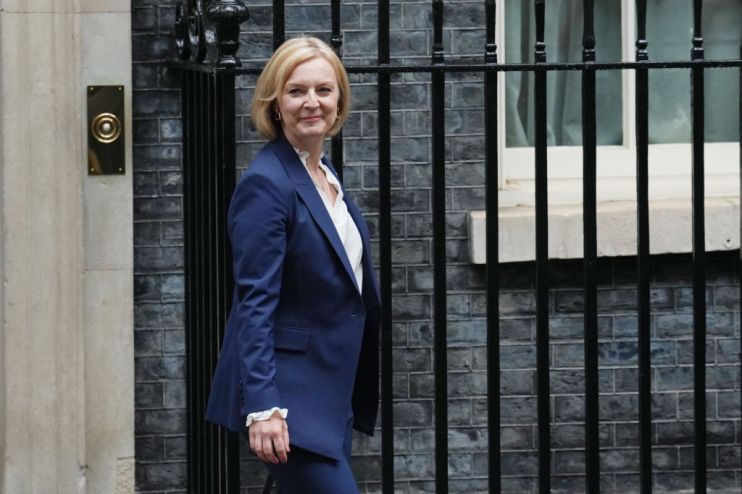Liz Truss energy price freeze would peg inflation, BoE chief economist says

LIZ Truss’s plan to freeze energy prices would prevent inflation from scaling to its highest level since 1980, but interest rates may have to stay higher for longer, the Bank of England’s top wonk said today.
Huw Pill, the monetary authority’s chief economist, told the commons treasury committee that the new prime minister’s cost of living support package will “weigh on inflation”.
Pill said a cap on bills would stop inflation from reaching the more than 13 per cent peak the Bank projected in August.
At the time, that forecast was among the bleakest. However, wholesale energy prices have since soared even higher, prompting Goldman Sachs to warn inflation could pass 22 per cent.
Freezing energy bills would reduce the category’s contribution to the Office for National Statistics’s measure of inflation – the consumer price index – and artificially push it lower.
Price pressures would still exist, but would be shouldered by the government.
Liz Truss is tomorrow set to announce plans to keep energy bills at around £2,500 and provide support for businesses grappling with sky-high gas prices at a cost to the taxpayer of more than £100bn.
Experts have warned freezing energy bills will embed high inflation in the UK over the long run by stimulating household spending and disincentivising reducing energy consumption. Without such a move, the UK could tip into a long recession.
The package “will boost inflation further ahead” by “supporting demand,” Paul Dales, chief UK economist at Capital Economics, said.
Bank governor Andrew Bailey and Pill indicated more rate rises are coming.
The Bank is “here to ensure [fiscal policies] don’t generate inflation,” Pill added.
The City tamed its bets on the Bank hiking rates 75 basis points at its meeting next Thursday after the comments, indicating investors think rates will rise gradually, but reach a steeper peak.
Traders are still pricing in a more than 50 per cent probability of a supersized move, which would be the biggest since 1989.
Rates have already scaled from a record low 0.1 per cent to a 14-year high of 1.75 per cent.
That rapid tightening cycle has been sparked by inflation flying to a 40-year high of 10.1 per cent, more than five times the Bank’s two per cent target.
Annual UK CPI inflation

Newly appointed chancellor Kwasi Kwarteng told Bailey today the government intends to cut the UK’s debt pile over the medium term.
Truss’s cost of living package is expected to be funded through a short-term borrowing surge.
Analysts said funding the package through borrowing will send UK government debt yields higher and heap even more pressure on the pound, which today sunk to its lowest level against the US dollar since the mid 1980s.
A borrowing bump means “questions will be asked about the UK’s reliance on the ‘kindness of strangers’,” James Smith, developed markets economist at ING, said in a nod to former Bank chief Mark Carney’s quip at how Britain funds its trade deficit.
Britain has long had a trade deficit – it buys more than it sells – meaning it relies on overseas investor credit.